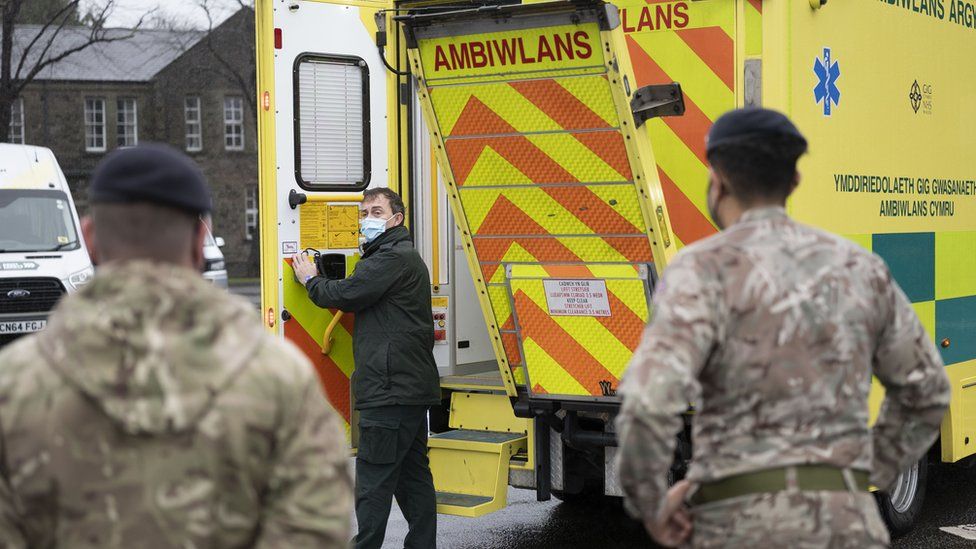ARTICLE AD BOX
 Image source, Getty Images
Image source, Getty Images
Soldiers were drafted in during the Covid pandemic to help drive ambulances
The government has said it wants to reduce its reliance on the armed forces to fill gaps in emergency situations.
A planning document says the use of military staff should be a "last resort" and in future it wanted to make greater use of reservists.
It comes as troops prepare to cover striking border staff and paramedics.
The ambition is part of an updated blueprint for dealing with disasters such as floods, pandemics and security threats.
About 1,300 military staff have been in training to cover for ambulance and Border Force staff set to walk out over the Christmas period.
Chief of Defence Staff Admiral Sir Tony Radakin has cautioned against seeing the military as an "ultimate backstop" during industrial action.
The government's latest strategy for dealing with emergencies said the military would remain the "ultimate guarantor" in response to threats.
Guaranteeing emergency services during industrial action is one of a range of activities that can be performed by soldiers under a special set of rules allowing them to be deployed on non-military tasks.
The procedure, which can also see them respond to events such as floods, was widely used during the Covid pandemic.
However, the document said that the military "cannot be the first port of call whenever an emergency hits".
It added that in non-emergency situations, regularly using the military would be "an indication of policy failure, inadequate resilience planning or chronic underinvestment".
The strategy document said that increasingly, reservists would play a "greater role" in so-called resilience operations, requiring a closer relationship with their employers so they can be released at short notice.
It added that using the military during crises came at a cost to government departments, which are billed by the Ministry of Defence when troops are drafted in.
Last week, the top civil servant at the department said it was charging other parts of government £4,000 per week per staff member to ensure they were being used as a "last resort" during industrial action.
Future risk planning
The strategy document, which charts how the government plans to improve contingency planning by 2030, also reveals plans to share more information about how it plans for crises.
It said that "sensitivity permitting," some details from the National Security Risk Assessment, a secret planning document, will be made public in a bid to improve preparations.
It added that there would be more consultation with experts outside government on future risks, and annual surveys of how the public sees the threat posed by emergencies.
A new "academy" will also be set up within the Emergency Planning College, a training centre based in York, to increase planning skills.
Elsewhere, the document confirms plans for a new system of alerts about severe weather and other life-threatening events to be sent to mobile phones to begin in "early 2023".
During the premiership of Liz Truss, the government said in September that the system was ready to launch, but a trial was on hold pending a cost-effectiveness review across departments.
Labour said the government had left the country "woefully unprepared" for disasters and have been "far too slow" to learn lessons from the Covid pandemic.

 2 years ago
33
2 years ago
33








 English (US) ·
English (US) ·